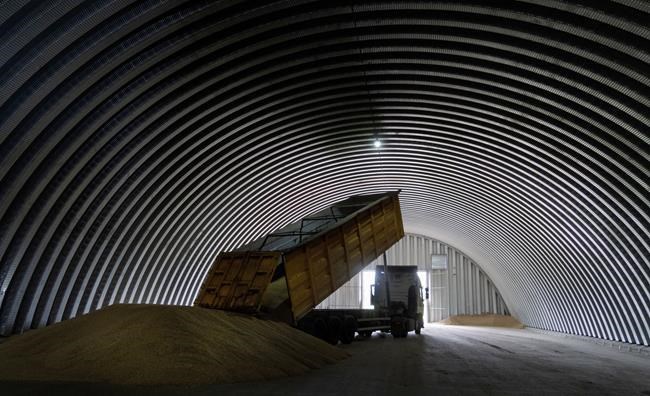GENEVA (AP) — Top Russian and U.N. officials held talks in Switzerland on Friday to try to iron out the and Russian food and fertilizer exports, with just over a week left before the wartime agreement meant to ease a is set to expire.
U.N. humanitarian chief Martin Griffiths and U.N. trade chief Rebeca Grynspan, who has been in charge of the Russian side of the agreement, were meeting in Geneva with a Russian team led by Deputy Foreign Minister Sergey Vershinin.
“This discussion, it is hoped, should advance progress made in facilitating the unimpeded export of food and fertilizers originating from the Russian Federation to the global markets,” U.N. Geneva spokeswoman Alessandra Vellucci told reporters.
The because Ukraine and Russia are , barley, and other food, especially to parts of Africa, the Middle East and Asia where many and . A failure to renew the wartime agreement has raised .
U.N. officials say the meeting will focus on “full implementation” of two separate agreements signed with Russia and Ukraine in Istanbul on July 22. Russia in the deal two weeks ago, alleging a Ukrainian drone attack on its Black Sea fleet in Crimea.
Russian authorities have said they are dissatisfied with the implementation of the accord and that they haven't yet decided whether to extend the after it is set to expire on Nov. 18.
There are no U.S. or European Union sanctions on food and fertilizer shipments, but Russian diplomats have cited for ships and finding ports where Russian vessels can dock.
“We need to resolve a number of issues related to the well-known part of the so-called grain deal that concerns us," Kremlin spokesperson Dmitry Peskov told reporters. “Here, there is a mutual understanding on the part of our counterparts in the UN. Therefore, work is underway in this direction.”
Grynspan, who heads the U.N. Conference on Trade and Development, told the Security Council last week that Ukraine and Russia provide around 30% of the world’s exported wheat and barley, 20% of its corn, and over 50% of its sunflower oil. , accounting for 15% share of global exports.
Ukrainian grain shipments from the Black Sea ports have topped 10 million metric tons, the U.N. has said, and an could have a , availability and security in many parts of the world.
“Nobody, I think, wants to see that there is a termination of the deal. I think the situation would be really difficult, and the implications would be very serious,” said Boubaker Ben Belhassen, who heads the trade and markets division of the U.N.’s Food and Agricultural Organization.
“In the short term, certainly prices will have to respond and they will increase, especially, for example, for wheat, for maize, and also for sunflower seed oil,” he told reporters during a U.N. briefing Friday.
___
Follow all of AP’s coverage on the food crisis at and the war in Ukraine at .
The Associated Press




